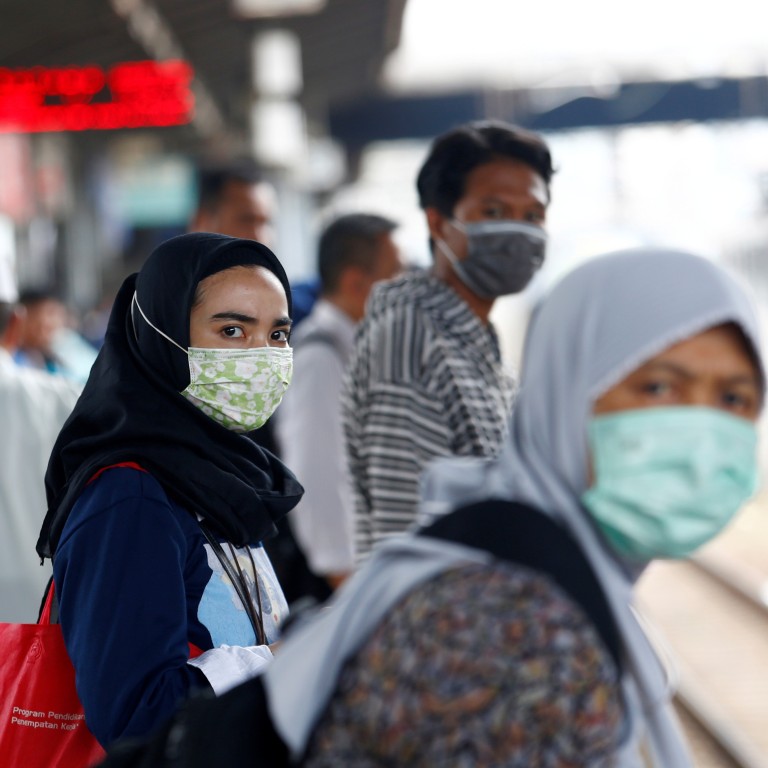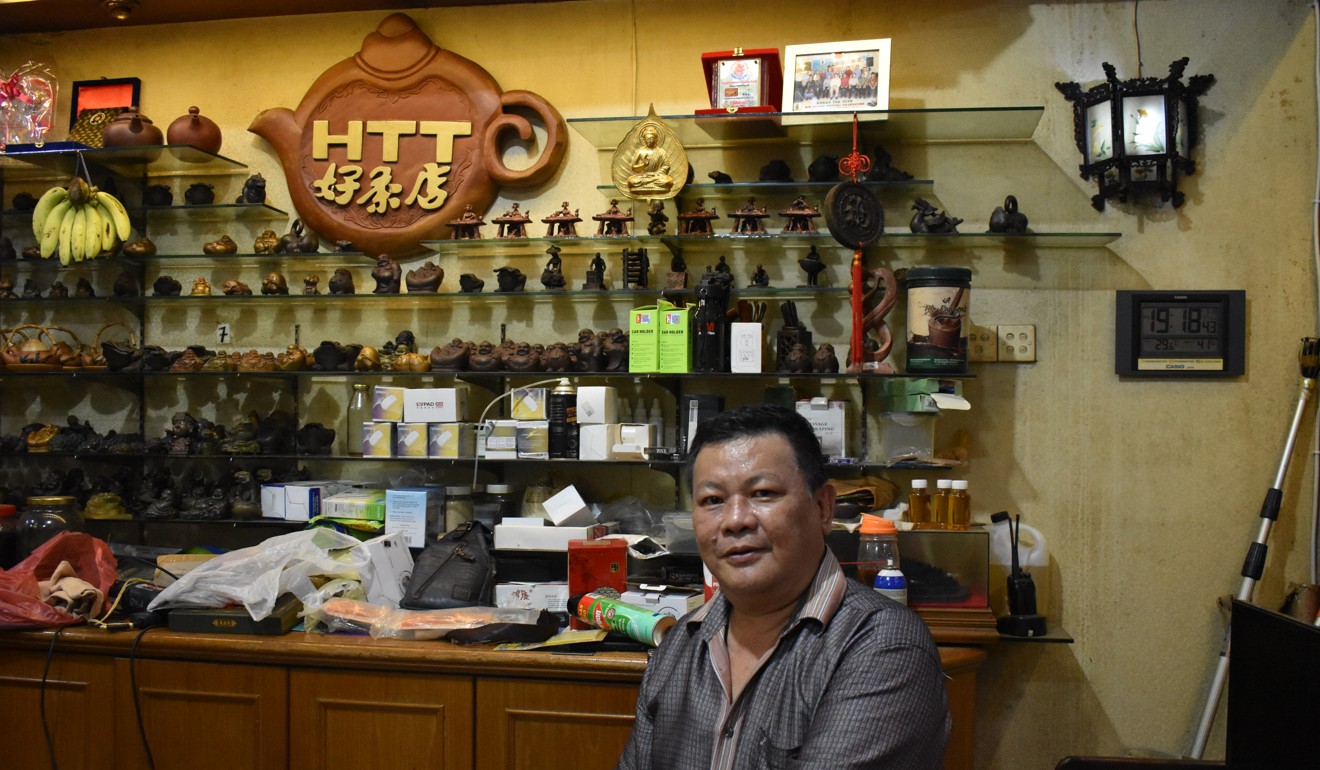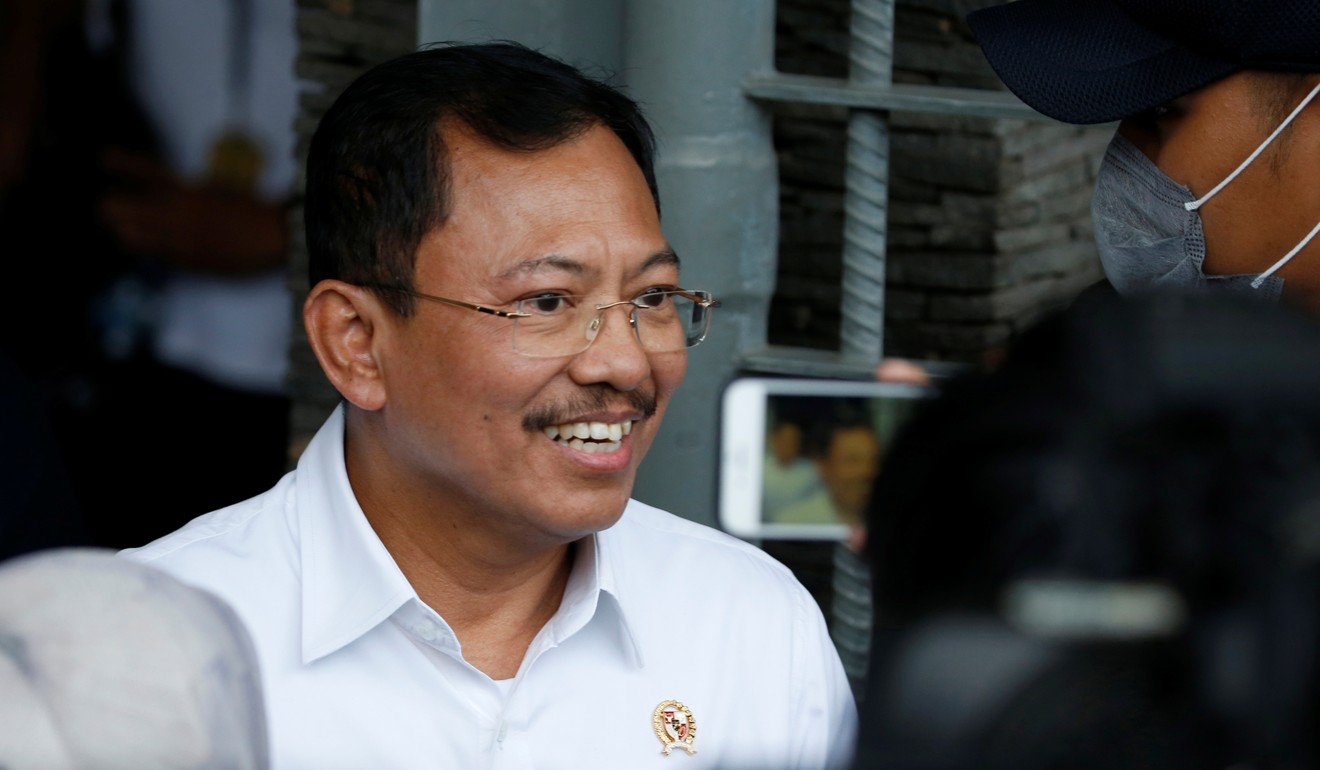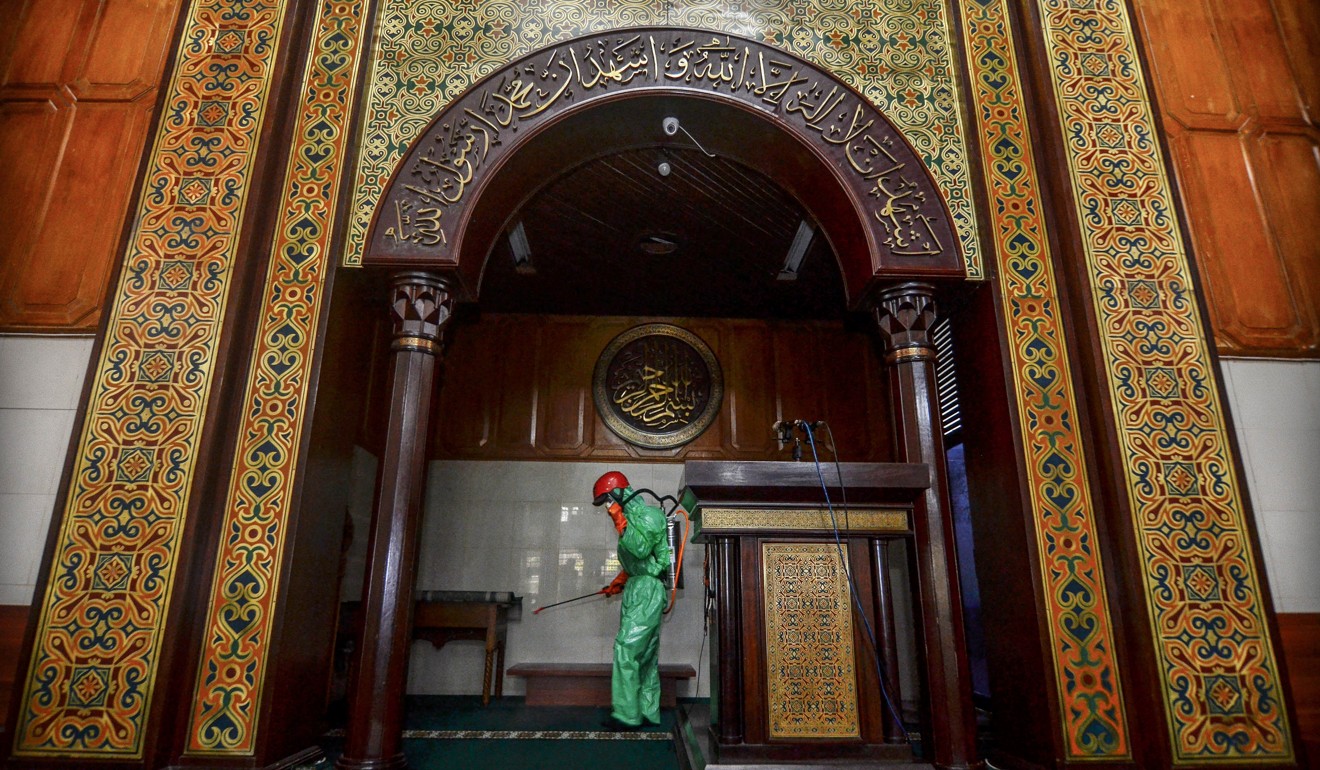
Coronavirus: anti-Chinese social media ‘more scary than Covid-19’ in Indonesia
- As the coronavirus spreads through Indonesia, the fears of the ethnic Chinese community go beyond whether the health care system can cope
- Covid-19 has prompted a new outbreak of discrimination in a country that has long struggled with racial tensions

RACIAL TENSIONS
Chinese-Indonesians were targeted in the anti-communist purges that took place in the 1960s under the rule of former president Suharto and resulted in more than 500,000 deaths.
Racial tensions have continued to flare periodically, including in 1998 when race riots, which originated in the city of Medan, swept the country, leaving more than 1,000 people dead, including many ethnic-Chinese. The riots led to the fall of Suharto after 30 years in power and were linked to the 1998 financial crisis that ravaged Indonesia. Chinese-Indonesians were accused of hoarding wealth and taking jobs away from the many “indigenous” Indonesians who lived in poverty. In the years since, hoaxes involving Chinese-Indonesians have spread online, including in 2016 when a batch of chillies from China were incorrectly identified as “biological weapons”.

With the advent of Covid-19, these tensions have surfaced again, with calls on Twitter for a fatwa, or a non-legally binding pronouncement on Islamic law, to bar Chinese-Indonesians and Chinese nationals from entering Indonesia. These calls were in part a reactivation of long-held anti-Chinese tropes in Indonesia as well as a reaction to a fatwa issued on March 16 by the Muslim Ulema Council (MUI), Indonesia’s largest clerical body, stating that Muslims should no longer attend prayers at local mosques in areas with a high risk of contagion.
According to the MUI, Friday prayers are still mandatory in places with low risk of transmission, although late on Thursday the governor of Jakarta, Anies Baswedan, said all mosques and churches in the capital would be closed for two weeks.
SLUGGISH RESPONSE
Indonesia, which is home to over 260 million people, has been widely criticised for being too slow in its response to the coronavirus, with Health Minister Terawan Agus Putranto attributing Indonesia’s initial lack of cases some weeks ago to the “power of prayer”. Since then the country has recorded 450 infections and 38 deaths. The government believes 700,000 people could be infected.
Efforts to encourage social distancing to slow the spread of the virus have had a mixed response, particularly among religious communities.

On Thursday, President Joko “Jokowi” Widodo said he had issued instructions for faster testing and test kits.
“I demand rapid tests be carried out across the country for early detection of infection,” he said in a short statement at the Presidential Palace.
The new kits are faster as they test blood serum rather than larynx or nasal fluid, and can be conducted at any laboratory in the country rather than the standard testing kits which have to be conducted in Level 2 Biosafety laboratories.
There are fears that the increase in testing will also lead to more and more patients testing positive, overwhelming hospitals which are already at capacity and putting health workers at increased risk.

RISK TO WORKERS
According to experts on the ground, Indonesia is now racing to make up for lost time after failing to implement testing and social distancing initiatives early on, especially in areas outside the capital city of Jakarta.
Dr Ade Rahmaini, the head of the Covid-19 coordinating team at Adam Malik Hospital in Medan, said isolation rooms at the hospital were now full and patients were waiting to be referred to other hospitals across the province. “We have 11 isolation rooms and two more patients are awaiting hospital referrals,” she said. “We still have enough protective equipment and have been offered donations of more from NGOs and local residents.”
Medan has a population of just over 2 million people. North Sumatra’s governor, Edy Rahmayadi, has promised that 1,000 isolation rooms will be prepared across North Sumatra in the coming weeks.
But the head of Amnesty Indonesia, Usman Hamid, said health workers were at risk in other parts of Indonesia and that at a hospital in Tasikmalaya, West Java, some workers transporting patients suspected of having Covid-19 had to use plastic raincoats instead of hazmat suits. “Yesterday, Amnesty Indonesia issued a joint statement with associations of medical doctors, nurses and other health workers,” he said. “We urged the government to provide them with adequate and quality personal protective equipment, information, training and psychosocial support. There are no effective mechanisms in place so far to guarantee support for the families of health workers or others who have died or become ill as a consequence of exposure to Covid-19. This all puts so many people at risk.” ■
Purchase the China AI Report 2020 brought to you by SCMP Research and enjoy a 20% discount (original price US$400). This 60-page all new intelligence report gives you first-hand insights and analysis into the latest industry developments and intelligence about China AI. Get exclusive access to our webinars for continuous learning, and interact with China AI executives in live Q&A. Offer valid until 31 March 2020.

